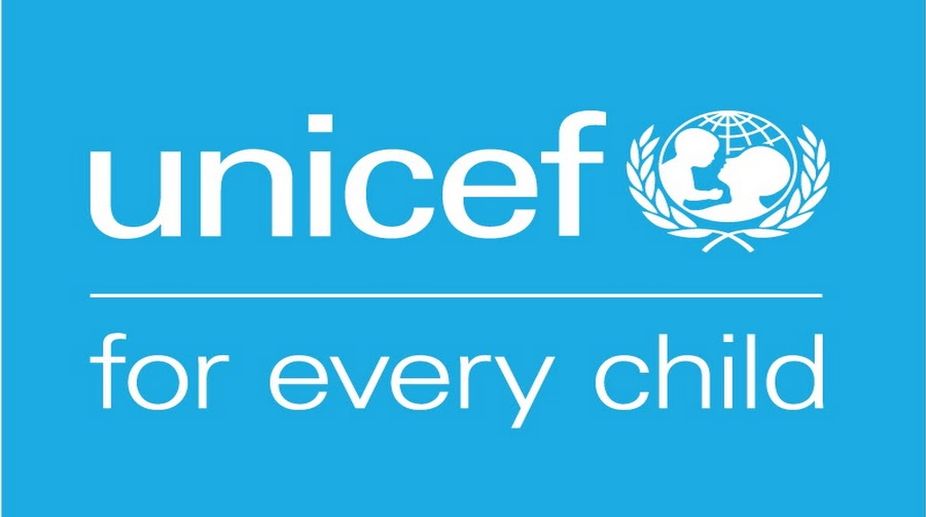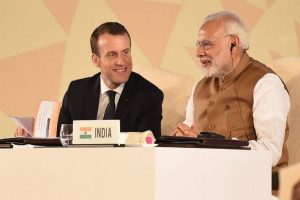With half the children under five in India being malnourished, the present Covid-19 crisis could further impact child nutrition and service delivery across the country that is in the grip of a ferocious second wave, said the UN Children’s Fund UNICEF.
“With 27 million births and 30 million pregnancies every year, life-saving services to help women give birth are critical in India,” said Yasmin Ali Haque, UNICEF Representative in India, on Friday.
Advertisement
“However, as health facilities continue to be overwhelmed treating Covid-19 patients, there are reports of pregnant women struggling to find the required support to give birth.”
She noted that schools across the country remain closed, and remote learning is also disrupted in several states.
“This is tearing 247 million children in elementary and secondary education away from these safe spaces, just when they need them most. In addition, many children do not have access to digital learning. Learning loss will therefore continue for children in India.
“We’re assisting the government to ensure that critical services for the most vulnerable children continue to function across all states.
“UNICEF in India has been on-the-ground working tirelessly since the start of the pandemic.”
The UN official noted that India is in the grip of a ferocious second wave of Covid-19.
“In the last 24 hours (till May 7), India bore the burden of 414,188 new daily cases, which is highest daily case count ever recorded by any country in the history of Covid-19 pandemic — higher than even the count a day earlier (412,262). There were 3,915 deaths due to Covid-19.
“UNICEF is very concerned about this deadly daily surge in new cases. This wave is almost four times the size of the first wave and the virus is spreading much faster. On an average there were more than four new cases every second and more than two deaths every minute in last 24 hours.
“With the surge in cases, the virus is also affecting more people across age groups, including children and infants.”
She said, “What is happening in India should raise alarm bells for all of us. The pandemic is far from over. Covid-19 cases are rising at an alarming rate across South Asia, especially in Nepal, Sri Lanka and the Maldives. Entire health systems could collapse, leading to more tragic loss of life.
“Very low levels of vaccination in most South Asian countries (less than 10 per cent in India, Sri Lanka and Nepal) is adding to concern of the virus spiraling even further. Besides South Asia, we are also seeing alarming situations in other parts of the world.
“Along with the increase in COVID-19 cases, the impact on children being affected by the virus has also increased. And of course the impact of the outbreak and public health and social measures on children is likely to be aggravated following the second wave. They are living through a tragedy.
“Children are losing parents and caregivers to the virus leaving many of them destitute, without parental care.”
The UN official said, “While there isn’t enough data yet, we can see that illegal adoption pleas have surfaced on social media, making these orphans vulnerable to trafficking and abuse.
“UNICEF is calling for greater efforts to safeguard these orphans. We need to promote kinship care, family tracing, enhance functionaries and accelerate the sponsorship of destitute families.
“This surge is having dire consequences for children whose access to essential health, social, protection and education services is being constrained.
“Children are facing mental health issues and are at greater risk of violence, as lockdowns shut them off from their vital support networks.
“They are missing out on life-saving routine immunization, critical care and treatment for pneumonia and other diseases.”
UNICEF has sent critical lifesaving supplies to support India at this difficult time. For example, 3,000 oxygen concentrators, testing kits and other critical equipment in place.
It has sent additional critical lifesaving supplies to India, including two million face shields and 200,000 surgical masks. Additionally 2,000 more oxygen concentrators will arrive by the second half of May with another 2,650 being procured.
“We support the regular monitoring of more than 50,000 Covid vaccination centres across 27 states of India,” the UN official said.
“Covid has shown more than ever we are living in an interconnected world. India is under threat today. We need solidarity to prevent the situation from getting worse in other countries. We are very thankful for the support and compassion from the international community. We need the compassion and contribution to continue until we see the end of the pandemic,” she added.









